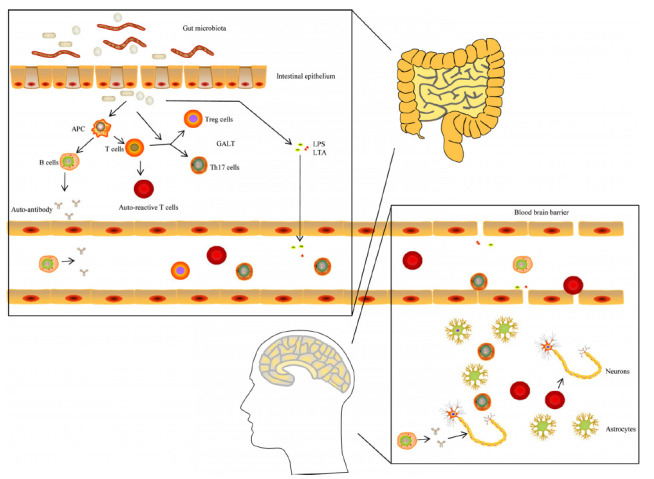Fig. (1).

The mechanism of the gut microbiota involment in the initiation and development of MS. Gut microbiota might active the auto-reactive T cells in GALT via mimicry or/and other pathway through disrupted intestinal barrier. Besides, they might also induce the production of auto-antibodies through the stimulation of APC and the activation of B cells. The decrease of anti-inflammatory metabolites (such as SCFAs) and the enhancement of pro-inflammatory signals (such as salic acids metabolism) caused by the dysbiosis of gut microbiota could suppress the differentiation of Treg cells and promote the expansion of Th1 and Th17 cells. In addition, several toxic microbiota components and metabolites (including LPS and LTA) might enter into blood and contribute to the destruction of BBB. Subsequently, Th1, Th17 and auto-reactive T cells can infiltrate the CNS through disrupted BBB, resulting in the inflammation in CNS and the injury of myelin and neurons damage. In turn, the inflammation CNS may also recruit more inflammatory immune cells and cytokines, aggravating the CNS injury. APC, antigen presenting cell; BBB, blood brain barrier; CNS, central nervous system; GALT, gut associated lymphoid tissue; LPS, lipopolysaccharide (LPS); LTA, lipoteichoic acid; SCFAs, short-chain fatty acids.
